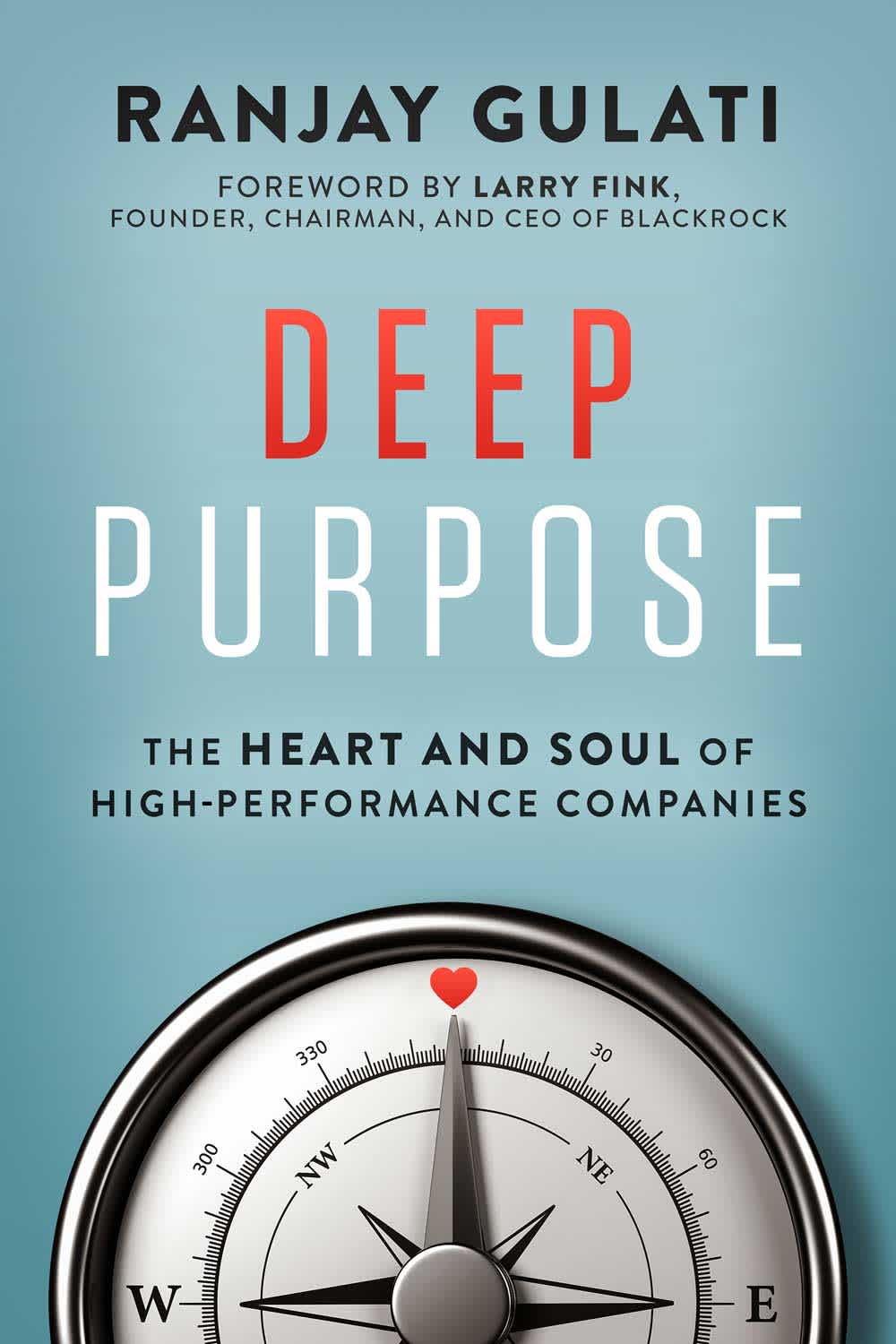An External View on Recruit Group's Efforts from the Professor of Harvard Business School
“When people feel they are making an impact through their work and have the freedom to decide what to do, they will be motivated and committed.”
I became interested in Recruit Group, the global staffing and media firm, while I was doing research on how business ventures can scale successfully. I learned that the CEO of Recruit Marketing Partners*, Fumihiro Yamaguchi, had created an education unit called Study Sapuri that grew from three employees to nearly a thousand courses in just a few years, and had still managed to impart a strong sense of purpose across the unit.
*Currently serving as the Executive Officer of Recruit Co., Ltd.
With this in mind, I visited Tokyo to interview some of the senior executives of Recruit Group. Through these discussions, I came to see that the company has a unique way of encouraging new business ideas. Consistently it has been able to turn those ideas into viable businesses and scale them to a level where they can not only make a profit but also improve society.

Ranjay Gulati Professor of Business Administration at Harvard Business School
Many former employees of Recruit, which was founded in 1960, have gone on to pursue successful careers in business, government, education, media, and other sectors. Recruit has always placed an emphasis on hiring self-motivated individuals with a strong drive and a determination to succeed. However, that is not the only reason that Recruit employees are known for their entrepreneurial spirit. Once they are hired, employees are given entrepreneurial opportunities from a very early stage in their careers, regardless of their background or experience. Employees are frequently asked “What do you want to do?” or “Why are you here?” in the context of their everyday work, and they are trained to think and decide what to do on their own.
Recruit provides employees with concrete pathways through which they can turn their ideas into real businesses. These include an internal business plan competition; applying key performance indicators; and using a staff review system known as “Will-Can-Must” that clarifies employees’ aspirations. “Can” encompasses their current capability, “Will” defines aspiring goals, and “Must” describes how to fill the gap between the two.
Recruit employees have plenty of freedom to think and act like entrepreneurs within the framework that the company provides. This carefully structured framework has enabled employees to spawn many successful entrepreneurial ventures from within the company.
It’s true that there are always dangers with this kind of approach. Giving employees too much freedom can easily lead to disruption and chaos. That’s why an overall sense of purpose within an organization is crucial. At Recruit Group, purpose takes the form of “Vision, Mission & Values,” and one key part of that purpose includes prioritizing social value.
What does it mean to prioritize social value? Does Recruit pursue social value without concern for financial performance, or vice versa? While researching the company’s Study Sapuri business, it amazed me that the top management of Recruit Holdings continued to provide support by investing in the business for several years and even allowing the acquisition of Quipper, a London-based education technology start-up, before Study Sapuri’s business became profitable. That’s because top management at Recruit was committed to supporting Study Sapuri as long as the business was demonstratively on its way to realizing its purpose.
In the time before Study Sapuri started operating in the black, Recruit had faith that smart thinking and hard work could lead to purpose with profit. Employees saw that both management and their peers were pursuing purpose in a similar way, and responded in kind. The idea may sound quite straightforward, but for most companies it is quite difficult in practice.
Recruit still faces challenges. It must find ways to maintain its entrepreneurial mind-set as it grows steadily in size and range. Maintaining its purpose is more complex as it expands globally. Members of Recruit Japan are well aware of a major scandal in 1988 in which the company’s founder was arrested for offering company stock to politicians – a case that led to the resignation of the prime minister and his cabinet.
The details of this wrongdoing, and a concerted effort to adopt a more ethical company ethos, are so embedded in company culture that they can largely remain unspoken. It is far more complicated and challenging to share this kind of history and tacit understanding with colleagues from different backgrounds all around the world. As a result, the company’s strategies may well need to evolve.
But based on the successful measures that Recruit has taken to encourage entrepreneurial behavior so far, and given that it has overcome past challenges in every phase of scaling, I believe that the company can find a way this time, too. Recruit has an exceptionally strong commitment to its purpose, and I look forward to seeing many new ventures with clear social value yet to emerge from this group.
Ranjay Gulati
Paul R. Lawrence MBA Class of 1942 Professor of Business Administration at Harvard Business School
Ranjay is an organizational scholar and currently serves as Professor of Business Administration at the Harvard Business School. He earned a master's degree in management from the MIT Sloan School of Management in 1987, and a Ph.D. from Harvard University in Organizational Behavior in 1993. Ranjay taught at Northwestern University's Kellogg School of Management from 1993 to 2008, and has taugh at Harvard Business School since 2008. He is the former Unit Head of the Organizational Behavior Unit, and the former Chair of the Advanced Management Program at the School.

Featured Book
Ranjay Gulati (Author)
Publisher : HarperCollins Publishers (Feb.2022)
Language : English